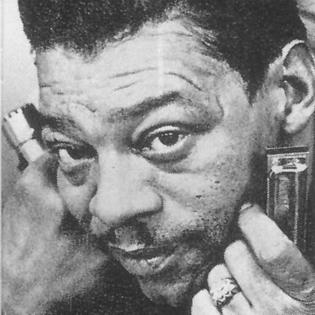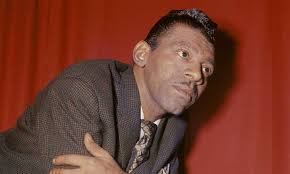Early Life and Background
Little Walter, born Marion Walter Jacobs on May 1, 1930, in Marksville, Louisiana, is celebrated as one of the greatest harmonica players in the history of blues music. His early life in rural Louisiana was marked by poverty and limited opportunities. Little Walter left home at a young age, around 12 years old, to pursue a career in music, which led him to travel across the South, absorbing the diverse musical styles of the region.
Rise to Fame
Walter’s journey brought him to Chicago in 1945, a city that was becoming a hotspot for blues musicians. In Chicago, he immersed himself in the vibrant blues scene and began to establish his reputation. His breakthrough came when he started playing with Muddy Waters’ band in 1948. This collaboration proved to be pivotal for both musicians. Walter’s innovative approach to the harmonica, marked by his amplified sound, significantly enhanced the band’s music. This partnership resulted in some of the most iconic recordings in blues history, including “Louisiana Blues” and “Long Distance Call.”
Solo Career and Innovation
In 1952, Little Walter’s career took a significant turn when he released “Juke,” an instrumental track that showcased his virtuosic harmonica skills. The song became a massive hit, reaching number one on the Billboard R&B chart and establishing him as a leading solo artist. “Juke” was notable for its driving rhythm and dynamic use of amplification, which gave the harmonica a powerful, horn-like quality.
Walter’s success continued throughout the 1950s with a string of hits, including “My Babe,” “Sad Hours,” and “Blues with a Feeling.” His recordings were characterized by their emotional depth and technical brilliance, blending traditional blues with modern electric sounds. Little Walter’s innovative use of amplification and his ability to make the harmonica a lead instrument in blues music set him apart from his contemporaries. His style influenced countless musicians and reshaped the sound of Chicago blues.
Challenges and Personal Struggles
Despite his professional success, Little Walter’s life was fraught with personal challenges. His turbulent lifestyle, marked by heavy drinking and volatile behavior, often led to conflicts and legal troubles. These personal struggles began to take a toll on his career by the late 1950s and early 1960s. As the popularity of blues music waned with the rise of rock and roll, Walter’s commercial success declined.
Legacy and Death
Little Walter continued to perform and record sporadically in the 1960s, but he never regained the commercial success he enjoyed in the 1950s. However, his influence on the blues genre and his pioneering techniques on the harmonica left an indelible mark on music history. He was posthumously inducted into the Rock and Roll Hall of Fame in 2008, a testament to his enduring impact on American music.
On February 15, 1968, Little Walter died in Chicago at the age of 37, reportedly from injuries sustained in a street fight. His death marked the end of a tumultuous yet brilliant career. Despite his brief life, Little Walter’s contributions to the blues have ensured his place as a legendary figure whose innovations continue to inspire musicians to this day.
Conclusion
Little Walter’s life was a blend of extraordinary talent and profound personal challenges. His pioneering work with the harmonica revolutionized blues music, and his recordings remain a vital part of the genre’s history. While his personal demons ultimately curtailed his career, his musical legacy continues to resonate, influencing generations of blues and rock musicians. Little Walter’s story is a poignant reminder of the complex interplay between genius and adversity in the world of music.


No responses yet